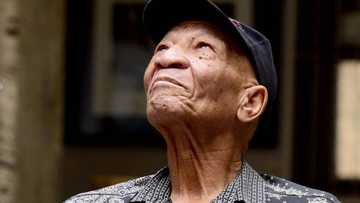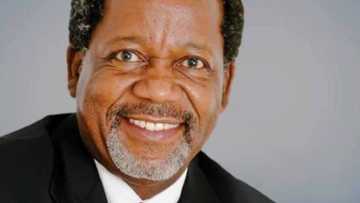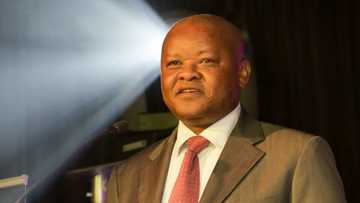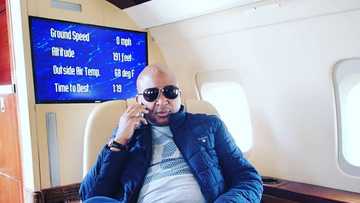History and bio of Robert Sobukwe
Robert Sobukwe is one of the legendaries in South African history. His quest for freedom was evident through his bravery. He was the founder and the first president of the Pan Africanist Congress, a party that envisioned the country's independence.
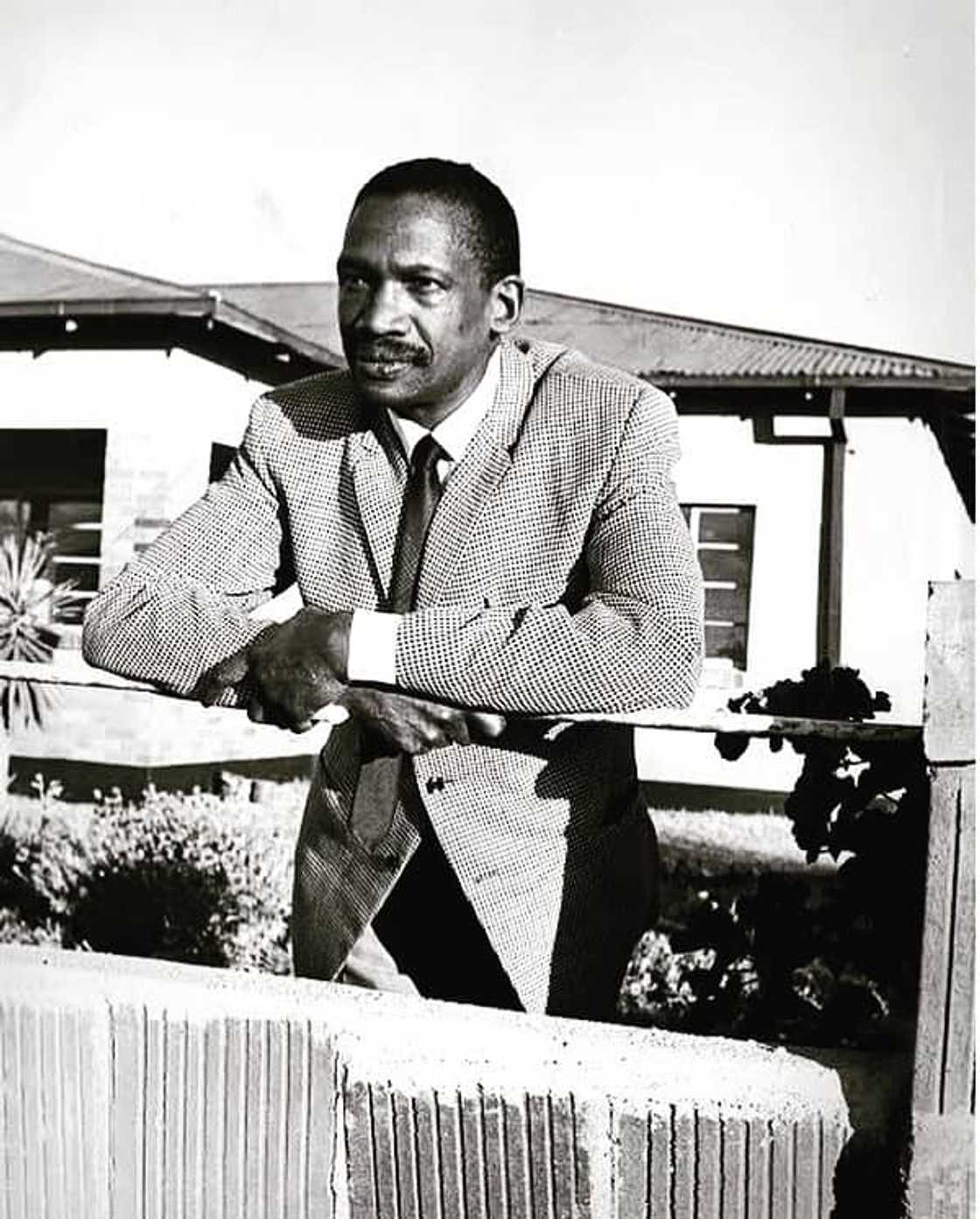
Source: UGC
Robert Sobukwe stood for the rights of the Africans and opposed the white rule. He posed as a threat to the then government and as a result, he was arrested and charged with sedition which saw him spend nine years behind bars. When he was released, he was put on banishment until his death.
The history of Robert Sobukwe
These are the details of Robert Sobukwe biography:
READ ALSO: Robert Sobukwe: 1 of the most feared activists during apartheid
Robert Sobukwe age
He was born on 5th December 1924. His hometwon was Graaff-Reinet in Cape Province. At the time of his death, he was fifty-three years old.
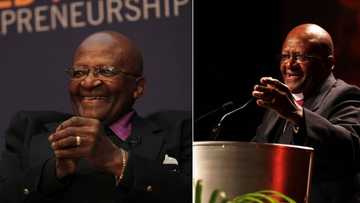
Read also
Archbishop Desmond Tutu hits the milestone birthday of 90, let's take a look at his greatest moments
Robert Sobukwe wife
The latter met Veronica Mathe in 1950 during his political operations, and they got married later that year.
Robert Sobukwe education
He attended primary school in his hometown after which he joined Healdtown Institute. He, later on, landed a scholarship to pursue a Bachelor of Arts major in Native Administration, Xhosa and English at Fort Hare University.
Before Sobukwe became part of the university, he still had not been interested in the country's politics. However, when he began his studies about Native Administration, his political interests were aroused.
Robert Sobukwe official interest in politics
In 1948, he became part of the ANCYL.
In 1949, the position of the president of Fort Hare Students' Council greatly influenced his election as the African National Congress Youth League's National Secretary.
A career as a teacher
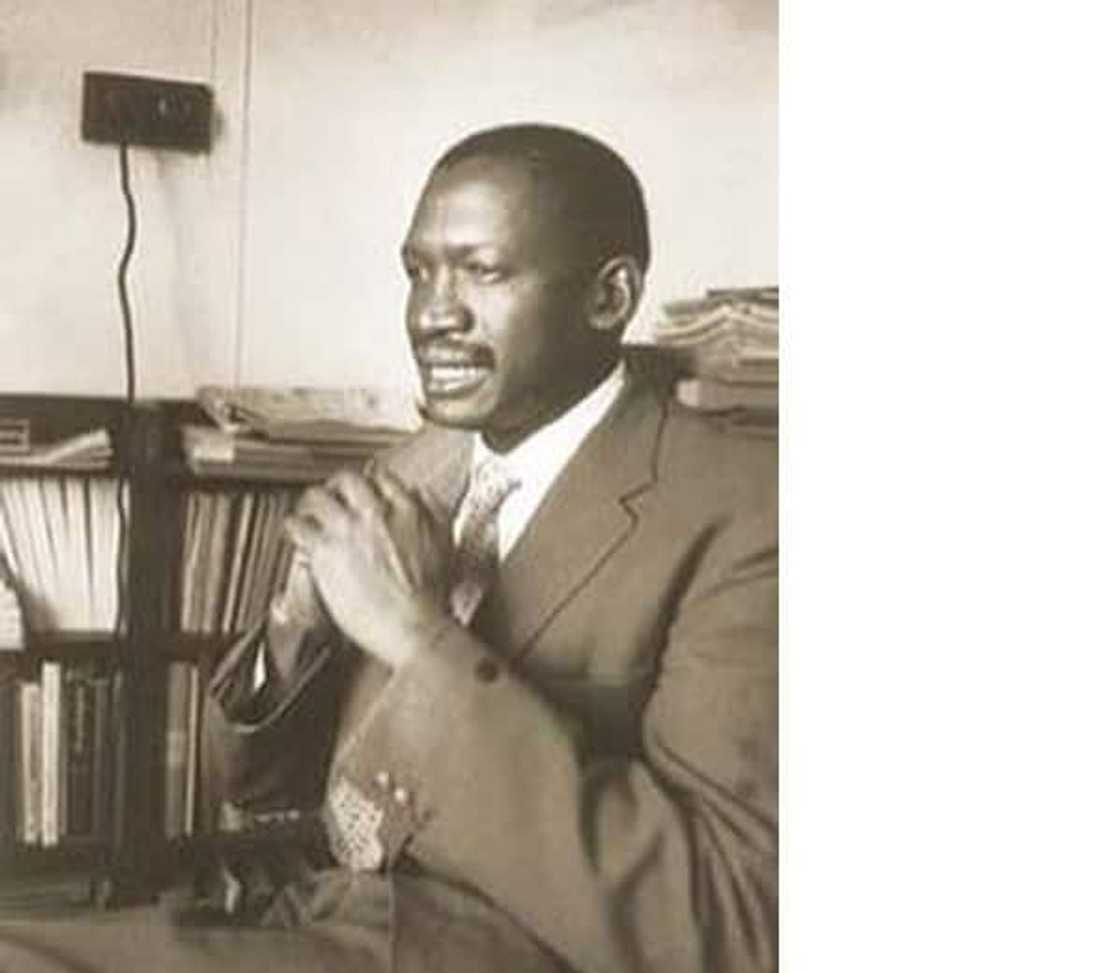
Source: UGC
In 1950, he landed a teaching job at a secondary school where he taught Geography, History and English. Two years later, he was sacked because of the remarks that he made about the Defiant Campaign. Luckily, he was reinstated and worked for another two years before he quit.
Between 1950 and 1954, he worked as the secretary for the ANC in Standerton, even though he did not actively participate in the matters of the party.
A career as a lecturer
In 1954, he got a job as a lecturer. He taught African Studies, and as a result, he ended up acquiring the name 'the Prof'. His new job forced him to relocate to Soweto, Johannesburg, and as a result, he joined ANC's branch in Soweto.
In 1957, he served as the editor of a publication called The Africanist. This provided him with the forum to criticise the malpractices in the ANC. In most cases, he would refer to them as 'liberal-left-multi-racialists'. He thought that the country's future relied on the black people in South Africa.
The rise of the Pan African Congress
Considering the malpractices in the ANC, Robert opted to break away and form an Africanist party called the Pan Africanist Congress. On 6th April 1959, during PAC's congress, he got elected as its first president.
In December 1959, PAC declared that it would also do a campaign that would be against the famous pass laws. The aim of the campaign was to ensure that the country attained its freedom within the four years that would follow.
Events before the campaign
On 3rd March 1960, Robert wrote a letter to Major General Rademeyer, the then Commissioner, to inform him about the campaign. In the letter, he committed himself to ensure that that the party's operations would be non-violent, sustained and disciplined. By this time, he had resigned as a lecturer. He had also relocated his family from their family house in Molofo. He was willing to go behind bars as he believed that the blacks would look at his action and be inspired.
The Sharpeville Massacre
On 21st March 1960, Robert Sobukwe began the campaign that entailed walking for eight kilometres. On his way, he was joined by several groups of people who supported the course. As the group got near Sharpeville police station, the worst happened as Sobukwe, and some of the people in the campaign were arrested for claims of sedition. The police also dispersed the marchers using firearms. As a result, they ended up killing sixty-nine people. During the process, one hundred and eight members were also injured, hence the name, the Sharpeville massacre.
The prison sentence
On 4th May 1960, a verdict was issued on Sobukwe's case. He was charged with stirring up Africans and revoking the pass laws. The court sentenced him to serve three years. Sobukwe did not appeal the verdict. Neither did he seek being represented in court.
Sobukwe clause
On 3rd May 1963, the South African legislature ratified an Act which they called the 'Sobukwe Clause'. This clause authorised the Minister of Justice to extend the prison sentence of any inmate sentenced for political reasons indefinitely.
Interestingly, Sobukwe was the only one who suffered the consequences of the clause. He was added another six years behind bars, and was moved to Robben Island.
Robben Island
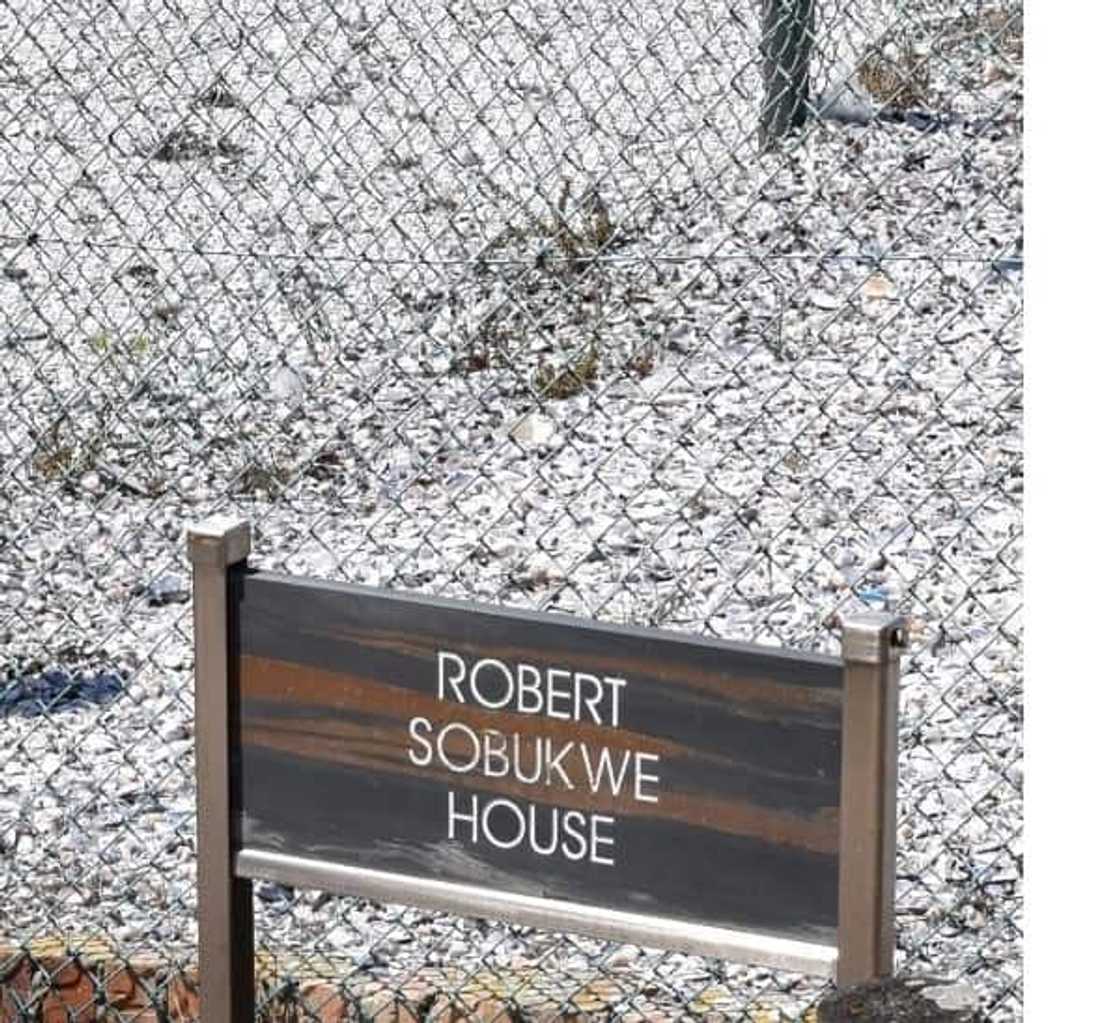
Source: UGC
Sobukwe stayed in confinement in Robben Island. He, however, was allowed to dress in civilian clothes. He also had books at his disposal. He, therefore, used the books, and as a result, he acquired his Undergraduate certificate in Economics.
In 1964, he received a job opportunity In the United States of America. He wrote a request to the Minister of Justice, pleading for his release to take the job offer. However, the minister did not grant him his plea.
Banishment
In 1969, Robert Sobukwe was finally released. He was sent on exile to Kimberly and was under house arrest for 12 hours. He was also prohibited from taking part in political matters.
One year later, he got a tutoring job offer at the University of Wisconsin in the United States. The US government had stated that it would give him his visa. The South African government, however, refused to grant him his passport request.
Out of frustration, he made another appeal in 1971 and requested to leave the country alongside his family permanently. The government refused to grant him his request.
A career as a lawyer
Amidst the frustrations, Sobukwe pursued his studies in law, and in 1975, he started his law firm. The Department of Justice denied his access to the courts even though this clause was, later on, banned.
The dark storm
In 1977, a few months after he had started running his law firm, Robert Sobukwe became sick. Due to the restrictions that had been put regarding him leaving Kimberly, he had a difficult time accessing medical services. In September, one of his friends intervened, and he was permitted to go to Johannesburg for medication where the doctors found out that he had lung cancer. Because of the severity of his condition, he was referred to Groote Schuur hospital.
While in hospital, Sobukwe was not allowed to be visited by anyone else apart from his family. His wife intervened, and when he was discharged, he stayed with Bishop Matolengwe, his close family friend. After a short stay with the bishop, the government ordered his return to Kimberly. He would only be allowed to go to Cape Town when he had medical check-ups.
The end of a troublesome journey
The banishment made it difficult for Robert Sobukwe to access medical services. As a result, on 27th February 1978, Robert Mangaliso Sobukwe breathed for the last time at Kimberley General Hospital. The medics declared that his death had been caused by complications with his lungs.
He was buried on 11th March 1978 in Graaff-Reinet.
Robert Sobukwe road
This road is situated in Cape Town. Robert Sobukwe road was named after him in his memory.
Robert Sobukwe books
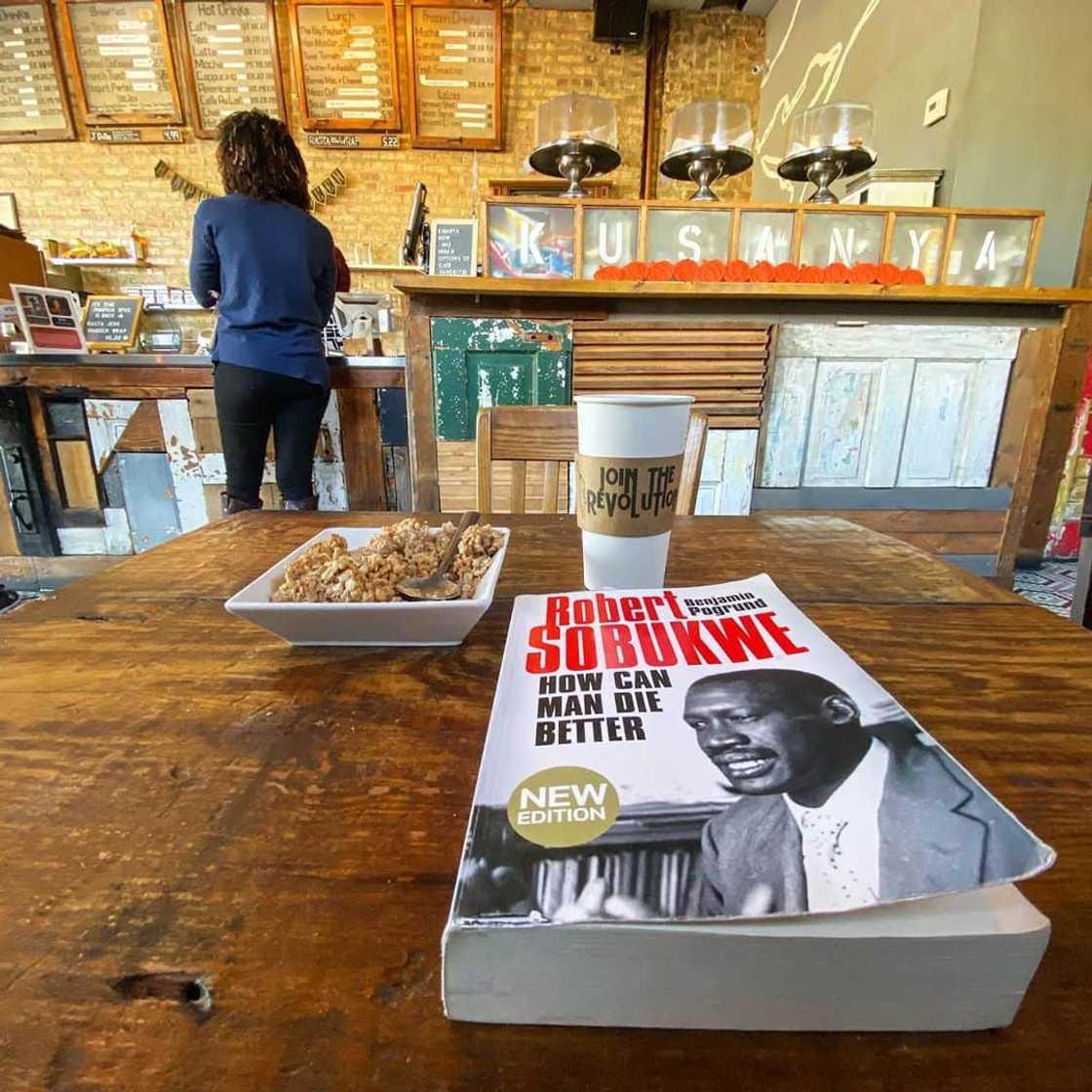
Source: UGC
A couple of publications have been made about the history of Robert Sobukwe. One of them is Lie on your wounds which you could access by clicking here.
Robert Sobukwe quotes
The late Robert Sobukwe was courageous and was willing to fight for the freedom of South Africa. His quotes depicted his bravery. These are some of the quotes that he was famous for:
We take our stand on the principle that Afrika is one and desires to be one and nobody, I repeat, nobody has the right to balkanise our land
we admire, bless and identify ourselves with the entire nationalist movements in Afrika. They are the core, the basic units, the individual cells of that large organism envisaged, namely, the United States of Afrika
Robert Sobukwe was a popular philosopher who upheld the spirit of Africanism. He was courageous as he fought for the freedom of the Africans and believed that his persecution would inspire people to keep on fighting.
READ ALSO:
- Buthelezi says Human Rights Day should be renamed after Robert Sobukwe
- Human Rights Day South Africa 2019: 10 important facts with pictures 2019
- Mangosuthu Buthelezi calls for death penalty and Mzansi has its say
Source: Briefly News

